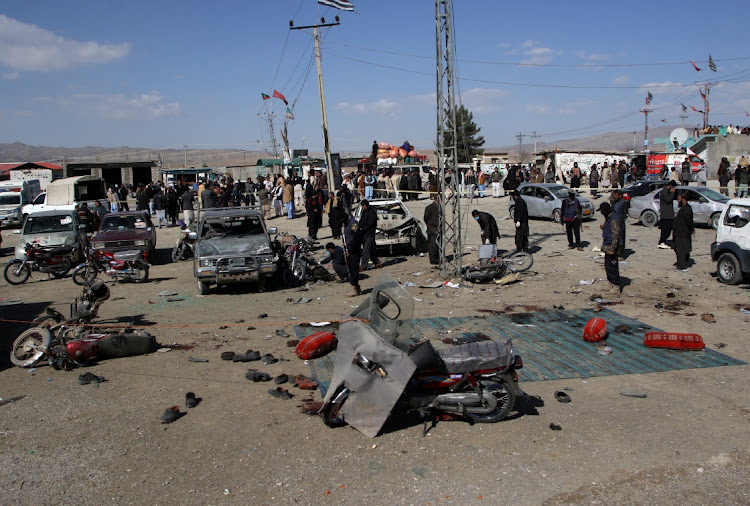Argentines have elected far-right libertarian outsider Javier Milei, 53, as their new president.
With almost all votes counted, Mr Milei had won close to 56% in the decisive run-off, ahead of his left-wing rival, Sergio Massa, with 44%.
The radical newcomer’s victory has been described as “a political earthquake”.
It has been welcomed by like-minded politicians such as US ex-President Donald Trump, who said Mr Milei would “Make Argentina Great Again”.
Brazil’s former leader Jair Bolsonaro said that “hope would shine again in South America”.
Sometimes dubbed “El Loco” (the madman) by his critics, Mr Milei has promised drastic changes, which include ditching the local currency, the peso, for the dollar and “blowing up” the central bank.
He has also proposed cutting welfare payments and slashing bureaucracy by closing the ministries of culture, women, health and education, among others.
On social issues, the president-elect wants to loosen gun laws, abolish abortion – which was legalised in Argentina in 2020 – and allow the sale and purchase of human organs.
Mr Milei’s victory comes amid a deep economic crisis which has seen annual inflation rise to 143% and 40% of Argentines living in poverty.
While opinion polls conducted before the election had given Mr Milei a slight lead over Mr Massa, the wide margin of his win – by more than 11% according to provisional results – has surprised many.
Mr Massa, who is the economy minister in the outgoing left-wing government, quickly conceded defeat saying that “obviously the results are not what we had hoped for”.
Analysts say Mr Milei’s aggressive style and his promise to “do away with the political caste”, which he blames for the country’s ills, appealed to voters who were fed up with Argentina’s established parties.
“This model of decadence has come to an end. There is no turning back,” he told his supporters in his victory speech, promising a new era for Argentina.
“From being the richest country in the world, today we are (ranked) 130. Half of Argentines are poor and the other 10% are destitute. Stop this impoverishing model of the caste. Today we embrace the Libertarian model so as to return to being a global power,” he said.
He also announced that the changes he would bring in would be drastic and immediate.
During campaigning, the former economist and pundit held a chainsaw aloft to symbolise plans to cut spending.
His message appeared to resonate with voters celebrating his win in the streets of Buenos Aires. One woman told AFP news agency that “we were very tired, we wanted to renew, we wanted to see new faces, always the same ones, I bet on change, on Milei, that it will go well for him, it will go well for the country”.
However, economists have been more circumspect, pointing out that Mr Milei’s party only holds a small number of seats in Argentina’s Congress and that he will therefore have to negotiate with the very politicians he disparaged and attacked during the campaign.
Despite his anti-establishment rhetoric, Mr Milei has in the past been quick to bury the hatchet if it suits him politically.
Following his win in the first round, he stopped attacking the third-placed candidate, conservative Patricia Bullrich, who in turn threw her weight behind Mr Milei in the second round.
In his victory speech, he thanked both Ms Bullrich and the conservative former president, Mauricio Macri, who had also endorsed him.
But while his supporters took to the streets of the capital, Buenos Aires, chanting “change!”, there are also those who worry about what Mr Milei’s victory may mean for Argentine society.
His choice of Victoria Villarruel as his vice-presidential running mate shocked human rights campaigners in the country, in which 30,000 people were killed or forcibly disappeared under military rule from 1976 to 1983.
Ms Villarruel, who comes from a military family, has defended officers convicted of crimes against humanity and proposed dismantling a museum which commemorates victims of Argentina’s military junta.
Mr Milei and Ms Villarruel will be sworn in on 10 December for a four-year term.





